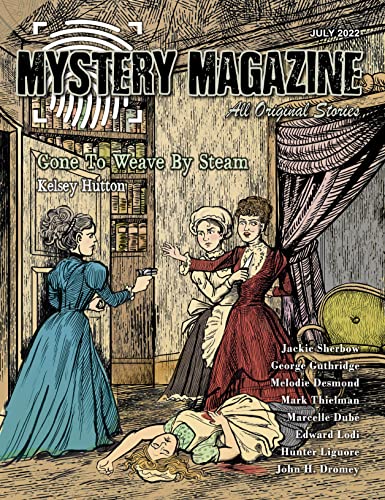"Mr. Moto at Manzanar," by George Zebrowski, in Sherlock Holmes Mystery Magazine, #30, 2022.I'm not generally a fan of pastiches, by which I mean Author X writing a new story about the characters and in the style of Author Y. And I say that knowing full well that I made a pastiche my pick of the week last month. Exceptions happen but they are a hard sell.
I am more positively inclined toward homages, where Author X dives into Author Y's universe and creates something different. Often this involves connecting the fictional world to the one we inhabit. For example, Nicholas Meyer more or less started the modern spate of new Sherlock Holmes' tales with The Seven Percent Solution, but he did it by asking: what if Sigmund Freud had analyzed the great detective?
Another example is James Lincoln Warren's clever story "Shakiri," which is based on the fact that army doctors in Afghanistan (like Holmes' friend Watson) were often spies for British Intelligence.
Now let's look at Zebrowski's contribution. It centers not on Holmes but a different character.
John P. Marquand created Mr. Moto in 1935, specifically to fill the gap left when Earl Derr Biggers's death left the world without new Charlie Chan novels. Moto was a secret agent for Japan. He appeared in five novels and half a dozen movies before World War II cast Japan in a different light.
In the current story Moto is real and the novels and movies are fiction based on his actual experiences. And Zebrowski asks: what would have happened to our hero when the Japanese were forced out of their West Coast homes and moved to internment camps?
This isn't a crime story. It's a stretch to call it a spy story. What it is is a thought experiment and I enjoyed it a lot.






